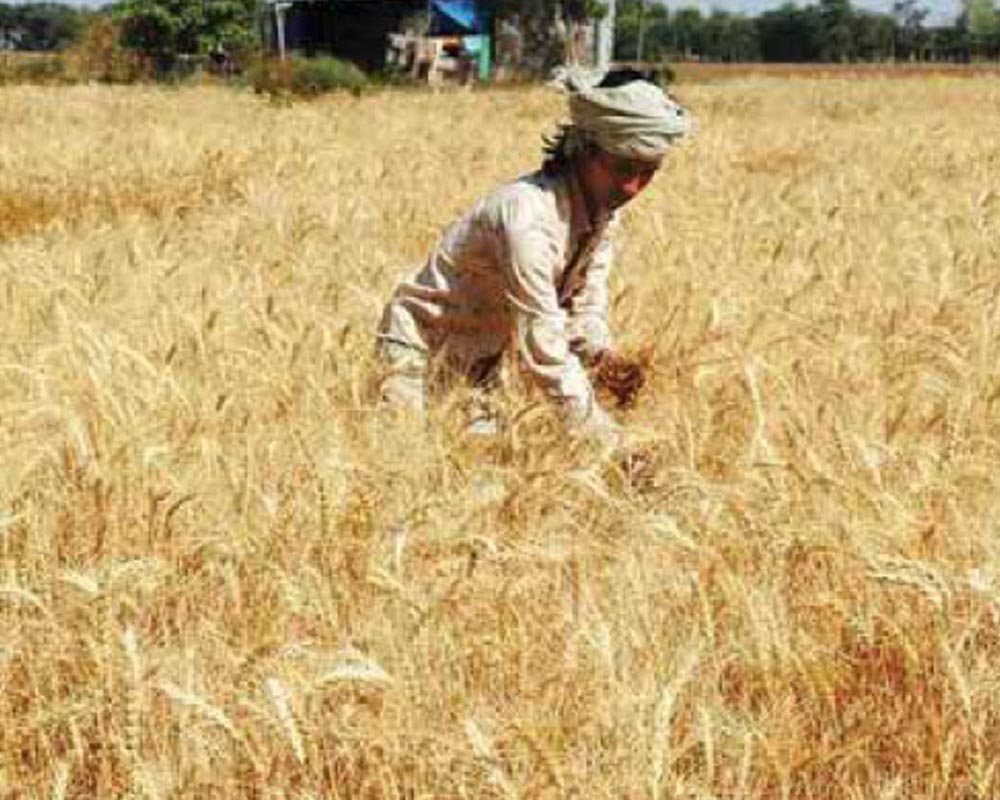- Cover Story
- Governance
- Globe Scan
- Corruption
- State Scan
- Talk Time
- Cover Story
- Governance
- Globe Scan
- Corruption
- State Scan
- Talk Time
Recent Posts
© Copyright 2007 - 2023 Gfiles India. All rights reserved powered by Creative Web INC.Cover StoryPromoting Cooperative Farm Start-Ups
A new initiative by the National Cooperative Development Corporation aims to encourage cooperative start-ups to explore innovative and value chain enhancement projects in agriculture and allied sectors such as dairy, poultry, livestock, fisheries, etc., involving small and marginal farmers
Dr. Abhilaksh LikhiJanuary 6, 20193 Mins read122 Views
 Written by Dr. Abhilaksh Likhi
Written by Dr. Abhilaksh LikhiTHE Niti Aayog’s Strategy Document for “New India @75” highlights that India is the third largest country in terms of the number of start-ups. In context of the recently launched Atal Innovation Mission (AIM) that aims at radically transforming the innovation entrepreneurship and start-up ecosystem of the country, the document further elaborates that over 1,000 Atal Tinkering Labs (ATLs) have been set up covering over 625 districts. It is further aimed, as per the document, to take this number to at least 5,000 by 2019 and 10,000 by 2020. Without doubt, nurturing such an ecosystem in the country has enabled emergence of non-conventional business opportunities that leverage the ‘demographic dividend’. The New York Times (April 17, 2014) forecast India to be the youngest country in the world with a median age of 29 years in 2020 making it potentially the biggest consumer market and labour force in the world.
In this backdrop, the National Cooperative Development Corporation (established by an Act of Parliament in 1963 as a statutory corporation under the Ministry of Agriculture and Farmers’ Welfare) has recently launched a “Cooperative Enterprises Support and Innovation Scheme”. The scheme will be linked to a Cooperative Start-up and Innovation Fund (CSIF) to be created by NCDC with an annual outlay of Rs 100 crore. This initiative aims to encourage newly formed cooperative start-ups through attractive loans to explore new, innovative and value chain enhancement projects in agriculture and allied sectors such as dairy, poultry, livestock, fisheries, etc., involving small and marginal farmers. An exceptional feature of the scheme is its focus on promoting cooperatives in the North Eastern Region, the Aspirational Districts as identified by NITI Aayog and cooperatives comprising either 100% women/Scheduled Castes/ Scheduled Tribes or Persons with Disabilities (PWD).
NCDC’s initiative would indeed be a stepping stone that will supplement the ongoing efforts of several agricultural universities and research institution to fill the gaps both in funding and mentoring of the farm start-up ecosystem. Ishani Dutta Gupta, writing in The Economic Times (December 09-15, 2018), details the contours of many such best practices around the countryside. According to Dutta Gupta, around 200 farm start-ups are being incubated in 24 Indian Council of Agricultural Research (ICAR) approved institutions such as the National Academy of Agricultural Research Management (NAARM) and International Crops Research Institute for the Semi-Arid Tropics (ICRISAT). The areas of focus are as diverse as crop management, pest control, crop insurance, agriculture supply chain management, action based localised crop advisories, organic farming, farm mechanisation, micro-irrigation, soil health management, food processing and post-harvest management, etc.
A few examples highlighted in the article include Ind Millets Foods, a Hyderabad based start-up that develops, produces and markets food products using millets; Farm Green Agritech, a Warangal based start-up that provides app-based free information on agriculture weather, market conditions and crops; Thanos Technologies, a start-up that provides drone-based services such as aerial spraying of pesticides; Delmos Research, a Karnal based start-up that provides easy testing solutions for detection of adulteration of milk. In nurturing of all such grassroot initiatives, experts and professionals alike, have pointed out a major need to strengthen backward and forward linkages amongst the major stakeholders– target small farmers, departments of agriculture, scientists/academia, private and public sector agro-industries.
A new initiative by the National Cooperative Development Corporation aims to encourage cooperative start-ups to explore innovative and value chain enhancement projects in agriculture and allied sectors such as dairy, poultry, livestock, fisheries, etc., involving small and marginal farmers
It would also be worthwhile to explore the role that 741 Farmer Producer Organisations (FPOs) formed under the Companies Act, could play in promoting farm start-ups across the 128 agro-climatic zones of the country. In fact, under the aegis of institutions such as NCDC and the National Council of Cooperative Training (NCCT), there is a dire need to aggressively push wider access, both in terms of investment and mentorship, for cooperative farm start-ups.
Empowering young farmer entrepreneurs as knowledge providers through such start-ups is the need of the hour in the wake of challenges such as climate change, water scarcity, need for input-output marketing and employment generation in the agriculture and allied sectors. This will enable, as the NITI Aayog document envisages, creation of a robust policy environment of income security wherein small and marginal farmers can capture a higher share of value addition from ‘farmgate to fork’.
(The writer is an IAS officer posted as Joint Secretary, Department of Agriculture & Farmers’ Welfare, Government of India. Views expressed here are personal)
Recent Posts
Related Articles
Cover StoryTablighi Jamaat : 1000 years of revenge
Written by Vivek Mukherji and Sadia Rehman Two contradictions are evident. Through April...
ByVivek Mukherji and Sadia RehmanMay 5, 2020Cover StoryWINDS OF CHANGE
Written by Gopinath Menon ADVERTISING : The name itself conjures up exciting images....
ByGopinath MenonMarch 4, 2020Cover StoryTHE ECONOMIC ROULETTE WHEEL
Written by Alam Srinivas THE wheel spins, swings, and sweeps in a frenzied...
ByAlam SrinivasMarch 4, 2020Cover StorySYSTEMS FAILURE, SITUATION CRITICAL
Written by Vivek Mukherji ONE of most quoted allegories of incompetence for a...
ByVivek MukherjiMarch 4, 2020 - Governance
- Governance

























































